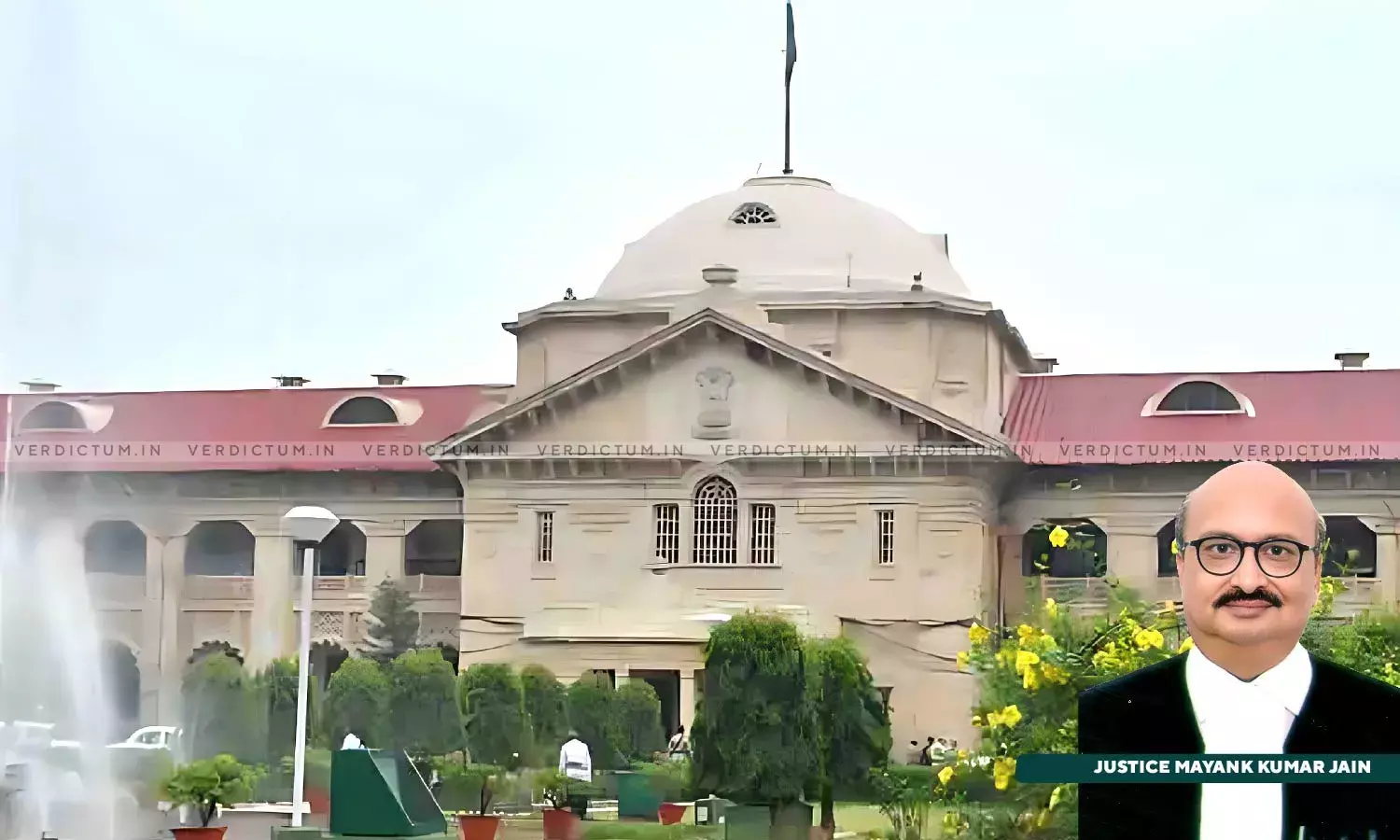Allahabad High Court Allows Appointment Of Commissioner In Mathura Krishna Janmabhoomi-Shahi Eidgah Mosque Dispute Suit

The Allahabad High Court granted permission for the appointment of a court commissioner to inspect the Shahi Eidgah mosque in Mathura.
The controversy revolved around the claim that the Shahi Eidgah mosque was built over the birthplace of Lord Krishna.
The Court emphasized that Rule 9 of the Civil Procedure Code, 1908 (CPC) makes no distinction between plaintiff and defendant. Either party can apply for a commissioner when the court deems a local investigation necessary, aiming to clarify issues through on-site examination.
“It is a settled law that order XXVI Rule 9 of the Code enables the Court to appoint commission to hold local investigation for the purpose of elucidating a matter in dispute and to bring on record the actual and factual status of disputed property for just and proper adjudication of the dispute”, the Bench of Justice Mayank Kumar Jain observed.
Senior Advocate Hari Shanker Jain appeared for the Plaintiffs and Advocate Punit Kumar Gupta appeared for the Respondent.
The Plaintiff submitted that Lord Shri Krishna was considered an incarnation of Lord Vishnu, and was born in Mathura around 5132 years ago. The historical timeline involves the construction and partial demolition of a temple at Lord Shri Krishna's birthplace by Raja Veer Singh Bundela and Aurangzeb, respectively. The Marathas restored the temple after winning a battle. The British treated the land as Nazool and auctioned it in 1815, with Raja Patnimal becoming the owner.
In 1944, Raja Patnimal's heirs sold the land to Mahamana Pandit Madan Mohan Malviya, forming the Shree Krishna Janambhoomi Trust in 1951. The Trust became defunct in 1958, leading to the formation of 'Shri Krishna Janam Sthan Seva Sangh' in 1958. Legal disputes followed, including a dismissed suit by Muslims claiming preemption rights based on a compromise. A 1967 suit sought to remove the Mosque's superstructure, resulting in a compromise in 1968. The plaintiffs contended that this compromise was illegal, void, and not binding on the deities and devotees.
The plaintiffs sought various reliefs, including cancelling the judgment and decree, declaring that said judgments were not binding, and asserting the deity Lord Shri Krishna Virajman's ownership of the 13.37 acres of Katra Keshav Dev land. The Plaintiffs also sought mandatory and prohibitory injunctions against the defendants to remove constructions and prevent entry into the premises.
The Court framed the following issues:
“a) Whether an application for rejection of plaint should be decided prior to the application for appointment of commission.
b) Application for appointment of commission under Order XXVI Rule 9 & 10 of the Code of Civil Procedure 1908 (Application No.130C)”
The Court emphasized that the power under Order VII Rule 11 can be exercised at any stage of the suit. The Court noted that the application for rejection of the plaint will be decided after the plaintiffs file objections and both parties are given a hearing. The Court dismissed the argument that the rejection application must be decided first and highlighted that no specific provision directs the court to prioritize one application over the other.
Furthermore, the court emphasized that Order XXVI Rule 9 of the CPC allows the appointment of a commission for local investigation to elucidate matters in dispute and bring the actual status of disputed property on record for proper adjudication. The Court reiterated that Rule 9 does not distinguish between the plaintiff and the defendant; either party can file an application for the appointment of a commissioner when the court deems a local investigation necessary. The purpose is to clarify issues through on-site investigation.
Additionally, the Court observed that the objective of Order XXVI Rule 9 is to elucidate matters in dispute through a local investigation. The Bench highlighted that the court can't prevent a party from presenting the best evidence, even if that evidence can be gathered with the help of a commissioner.
The Court further observed that the defendants can participate in the commission proceedings and file objections if they disagree with the report. The report is subject to evidence presented by the parties, and commissioners can be called as witnesses during the trial, with the opportunity for cross-examination.
Additionally, the Bench noted that the appointment of a commission, consisting of three advocates, would not harm either party. The report's effect on the merits of the case is clarified, and the court could issue directions to maintain the sanctity of the property during the commission's execution.
Addressing objections about the cause of action and the delay in applying for the commission, the Court found no substance in these arguments, considering the chain of proceedings, transfer of related cases, and the fact that the application was filed on the first hearing date before the court.
Accordingly, the Court allowed the Appeal for the appointment of a commissioner.
Cause Title: Bhagwan Shrikrishna Virajman v UP Sunni Central Waqf Board And 3 Others

